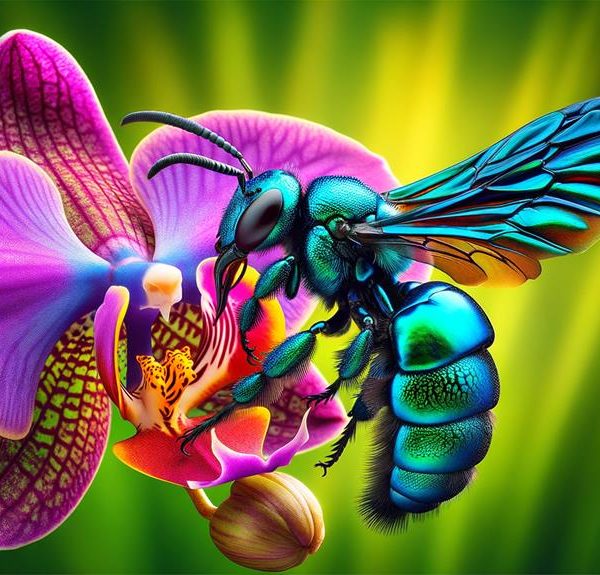Take a thrilling dive into the mysterious world of cuckoo bees and discover if their hidden weapon is truly poisonous.
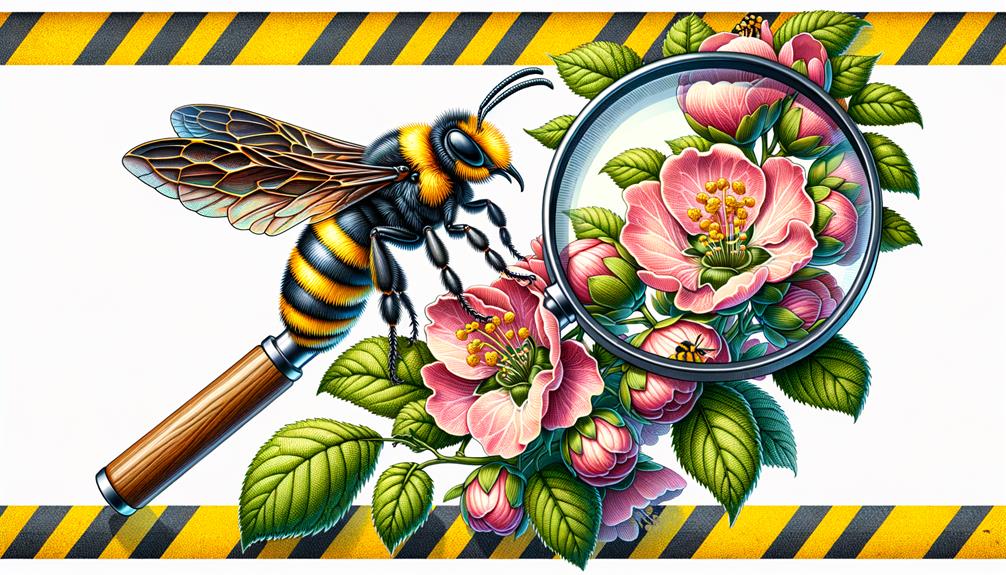
Are Cuckoo Bees Poisonous?
Just like a secret agent in a thriller, the cuckoo bee is cloaked in mystery and deception. You've probably seen them buzzing around, indistinguishable from other bees, but did you know they could be carrying a hidden weapon?
Some say it's poison, but is that really the case? Let's put our detective hats on and uncover the truth about these intriguing insects. The answer might surprise you.
Understanding the Cuckoo Bee Species
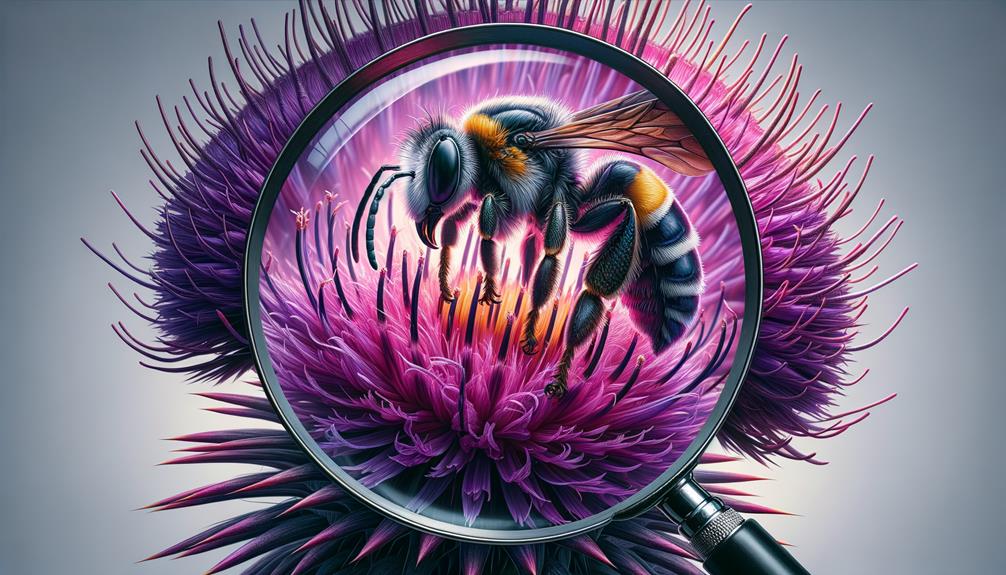
To fully grasp whether cuckoo bees are poisonous or not, you need to delve into understanding the unique characteristics and behaviors of this intriguing bee species. Unlike their industrious counterparts, cuckoo bees don't build their own nests. Instead, they're parasitic, laying their eggs in the nests of other bees. While this might seem cunning, it's important to remember that this behavior doesn't make them venomous.
When it comes to defense mechanisms, cuckoo bees aren't equipped with potent venom, as other bee species are. Instead, their primary defense is their tough exoskeleton, which protects them from potential threats. However, males of some cuckoo bee species do possess a sting, but it's not used for defense. Instead, it's a sex organ used during mating.
Scientifically speaking, this lack of venom is due to their lifestyle. Since they don't have a colony to defend, they've no need for a potent venom that other bees possess. This distinctive trait supports the understanding that cuckoo bees aren't poisonous. However, they should still be treated with caution as their behavior can be unpredictable.
The Unusual Lifespan of Cuckoo Bees
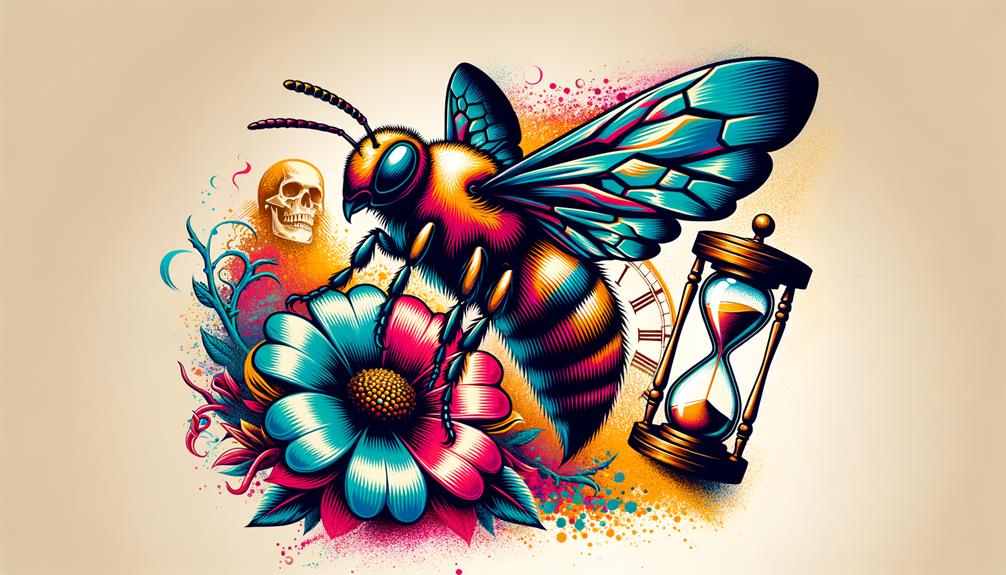
You might find it intriguing to learn that the lifespan of cuckoo bees is quite unusual, differing significantly from that of other bee species. Unlike regular bees that have short lifespans, cuckoo bees can live for several years. This is largely due to their unique parasitic lifestyle.
Instead of building their own nests, cuckoo bees lay their eggs in the nests of other bees. They don't have to exert energy on constructing nests, collecting pollen, or rearing offspring. Therefore, they're able to conserve energy and live longer. They spend most of their life in the larval stage, protected inside the host's nest. They emerge as adults only when conditions are optimal, further extending their lifespan.
The extended lifespan of cuckoo bees also has an impact on their reproductive cycle. Cuckoo bees often lay eggs in multiple nests to increase their offspring's survival chances. Moreover, they're known to produce fewer eggs than regular bees but invest more resources in each egg. This strategy ensures that their progeny is robust and has a higher survival rate.
As fascinating as they are, the life cycle and longevity of cuckoo bees clearly underline the adaptive strategies they've evolved to ensure their survival.
Cuckoo Bees' Defense Mechanisms
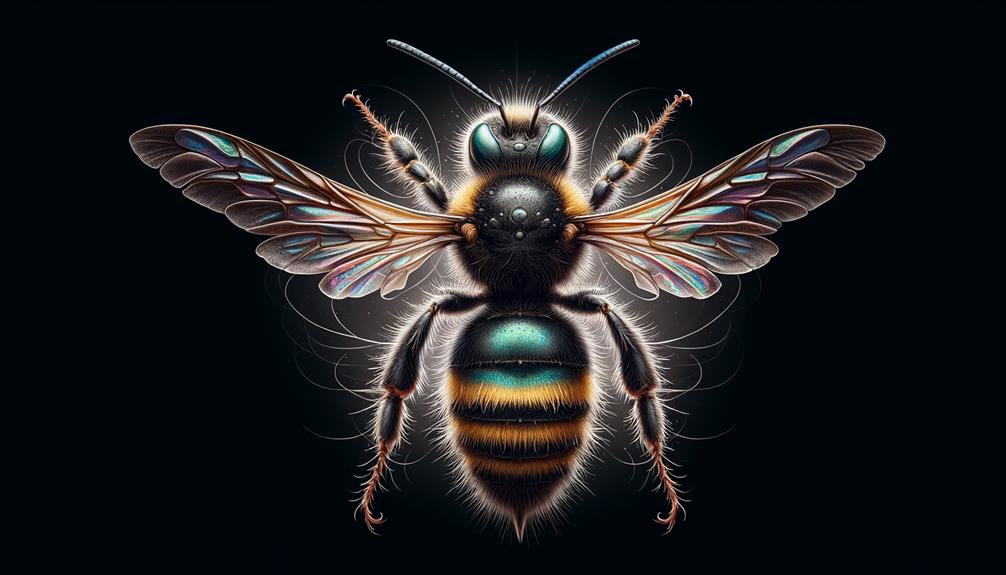
Remarkably, cuckoo bees possess a range of effective defense mechanisms, leveraging their unique lifestyle to evade predators and ensure their survival. Unlike other bees that may aggressively defend their colonies, cuckoo bees lead solitary lives and employ different methods to protect themselves.
- Mimicry: Cuckoo bees often imitate the appearance of more dangerous or unpleasant insects. This type of deception, known as Batesian mimicry, deters predators who mistake the cuckoo bee for a less palatable species.
- Parasitic Lifestyle: Their parasitic lifestyle also serves as a defense mechanism. By planting their eggs inside the nests of other bees, cuckoo bees cleverly evade the dangers associated with maintaining their own nest.
- Venomous Sting: While their primary defense is evasion and deception, cuckoo bees aren't completely defenseless. They're equipped with a venomous sting to protect themselves when threatened.
Are Cuckoo Bees Dangerous?

Despite their venomous sting and deceptive appearance, cuckoo bees pose minimal danger to humans. They're not aggressive and typically only sting when threatened or handled roughly. Their venom isn't potent enough to cause serious harm to a person unless they're allergic.
Here's a breakdown of the danger posed by cuckoo bees:
Threat Level | Rareness of Occurrence | Impact |
|---|---|---|
High | Very Unlikely | Severe allergic reaction |
Medium | Unlikely | Moderate pain/swelling |
Low | Likely | Mild discomfort |
High threat level involves severe allergic reactions, but these are very unlikely. Medium threats involve moderate pain or swelling, which are unlikely unless the bee is provoked. The low threat level, which is more likely, involves mild discomfort after a sting, akin to that of a regular bee.
Cuckoo bees' danger level is generally low. They're not ordinarily hostile unless they feel threatened. While their sting does contain venom, it's not potent enough to be significantly harmful. If you're allergic, precautions should be taken, but for most people, a cuckoo bee sting is a minor nuisance at worst. Safety comes from respect for these creatures, understanding their behavior, and giving them space.
Human Interactions With Cuckoo Bees

Building on their minimal threat to humans, interactions between people and cuckoo bees often go unnoticed due to the bees' non-aggressive nature and tendency to avoid populated areas. They're typically solitary creatures, seldom seen by the untrained eye. But what happens when humans do cross paths with these elusive insects?
- Observation: You might spot cuckoo bees if you're in their preferred habitats, which are generally wild, undisturbed areas. They're known for their distinctive, often metallic appearance which can be a fascinating sight for nature enthusiasts.
- Disturbance: If you accidentally disturb a cuckoo bee, it's unlikely to react aggressively. Unlike honey bees or wasps, they don't have colonies to defend and hence, they're less likely to sting. They'll probably just fly away.
- Sting: On the off chance a cuckoo bee does sting, you'll find it less painful than a honeybee sting. They aren't poisonous and allergic reactions are extremely rare.
Conclusion
So, are cuckoo bees poisonous?
No, they aren't. While their unusual lifestyle may seem threatening, they pose no direct harm to humans. Their stingers aren't venomous, so there's no need to worry about a poisonous sting. However, like any bee, they can still sting in defense.
Remember, understanding and respecting these intriguing insects is the key to peaceful cohabitation. Cuckoo bees, while different, are an important part of our ecological system.


